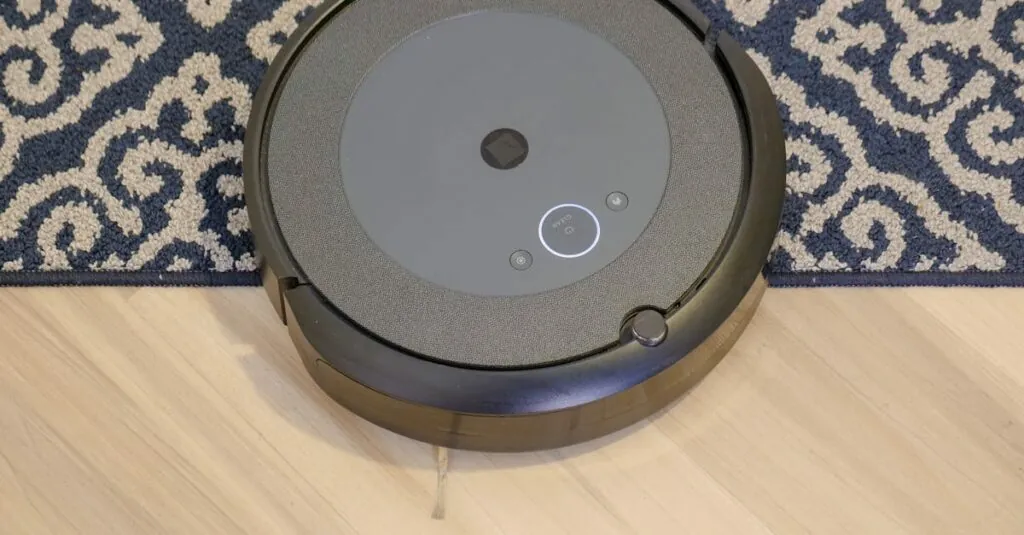Imagine walking into your home and having it greet you like an old friend. Smart homes are no longer a futuristic dream; they’re quickly becoming a reality thanks to innovative companies leading the charge. These tech-savvy firms are transforming everyday living into something straight out of a sci-fi movie, where lights dim, coffee brews, and the thermostat adjusts—all with a simple command or a wave of your hand.
Table of Contents
ToggleOverview Of Smart Homes Companies
Smart home companies focus on integrating technology into residential living. These enterprises design and create devices that simplify everyday tasks. Major players in this industry include Amazon, Google, and Apple, each offering distinct ecosystems.
Amazon provides the Echo range with Alexa, allowing users to control various smart home devices. Google’s Nest line includes thermostats and cameras, emphasizing energy efficiency and security. Apple’s HomeKit platform enables a seamless experience for iOS users, integrating various compatible devices.
Startups also contribute to this landscape with innovative solutions. Companies like Ring specialize in home security with smart doorbells and cameras. Brands like Philips Hue revolutionize lighting, enabling users to customize ambiance and energy use through mobile apps.
Smart home technology continues to advance, providing enhanced convenience and security. Data shows that 63% of consumers express interest in smart home devices. Growth in this sector highlights increasing consumer demand for automation and connectivity in daily living.
Investment in smart home technology rises as more companies enter the market. The increasing integration of artificial intelligence allows devices to learn user preferences, improving efficiency. Partnerships among tech companies also facilitate broader compatibility and user-friendly experiences.
Overall, a diverse array of smart home companies exemplifies the future of residential living. These organizations promote a lifestyle built on innovation and convenience.
Leading Smart Homes Companies
Numerous companies lead innovation in the smart home industry, providing advanced solutions that enhance convenience and security in residential living.
Company A
Amazon stands as a major player in the smart home market. The company’s Echo devices, powered by the voice assistant Alexa, allow seamless control over various smart home aspects. Users can adjust lights, set thermostats, and activate security systems using simple voice commands. Transparency in integration with third-party devices enhances usability. Furthermore, Amazon’s continuous updates ensure that the devices stay relevant, offering users new features regularly.
Company B
Google’s Nest has made significant strides in home automation. The Nest Learning Thermostat optimizes energy usage by learning user habits. Security cameras and smoke detectors also feature prominently in their product lineup, providing comprehensive safety solutions. Integration with Google Home enables users to manage multiple devices effortlessly. The focus on energy efficiency through intelligent automation appeals to eco-conscious consumers.
Company C
Apple’s HomeKit creates a cohesive ecosystem for iOS users. The platform supports a vast range of compatible devices, from smart locks to lighting systems. Users benefit from the integration of Siri, allowing voice commands to control smart devices efficiently. Privacy remains a core element of Apple’s offerings, ensuring user data stays secure. This commitment to security builds trust among consumers, promoting widespread adoption of their smart home products.
Innovative Technologies In Smart Homes
Innovative technologies in smart homes enhance convenience, security, and efficiency. They’re transforming everyday living through various applications and systems.
Home Automation
Home automation streamlines tasks, allowing homeowners to control lighting, climate, and appliances remotely. Smart speakers like Amazon Echo and Google Nest Hub provide voice commands for seamless operation. Remote access via smartphones empowers users to manage their homes from anywhere. Automated schedules enable devices to operate independently, adding to convenience. Many platforms are compatible with multiple devices, ensuring integration across different brands. For instance, smart plugs facilitate control over non-connected appliances by connecting them to a network.
Security Solutions
Security solutions have advanced significantly with smart home technology. Camera systems with live streaming and motion detection help monitor properties in real-time. Many systems send alerts and notifications directly to users’ smartphones, enhancing security awareness. Smart locks allow keyless entry and can track who enters or exits, improving access management. Integration with existing home security systems further enhances capabilities. Companies like Ring and Arlo specialize in these innovations, providing solutions tailored to modern security needs.
Energy Management
Energy management technologies focus on optimizing resource use and reducing costs. Smart thermostats, such as Nest and Ecobee, learn household patterns to adjust heating and cooling efficiently. Automated lighting solutions help minimize energy use by adjusting based on occupancy or time of day. Many energy management products offer real-time monitoring and consumption reports, allowing users to track their usage. Integration with renewable energy sources, like solar panels, enhances sustainability goals. This shift toward smarter energy solutions contributes to both savings and environmental benefits.
Future Trends In The Smart Home Industry
Integration of artificial intelligence in smart home systems is set to revolutionize the industry. Companies are developing devices that learn from user behaviors, making homes more intuitive and responsive. Enhanced voice recognition technology allows for more seamless interactions, improving user experience.
Investment in energy management solutions is on the rise. Advanced smart thermostats and automated lighting systems focus on reducing energy consumption while maximizing comfort. According to research, energy-efficient homes can cut utility costs by 20 to 30 percent.
Collaboration between tech giants and startups is becoming commonplace. Partnerships often lead to the development of innovative products that enhance security and convenience. Companies like Google and Amazon frequently invest in startups to expand their smart home ecosystems.
Increased focus on interoperability addresses a significant consumer demand. Products that work together across different platforms ensure that users can control multiple devices effortlessly. Smart home management apps are gaining popularity because of their ability to unify various brand products.
Remote monitoring and control emphasize safety and peace of mind. High-definition security cameras and smart locks allow homeowners to keep an eye on their property from anywhere. Reports indicate that 78% of consumers consider security features crucial when purchasing smart home devices.
Sustainability incorporates eco-friendly practices into the smart home landscape. Homeowners are increasingly adopting smart devices that contribute to environmental conservation. The integration of solar technology with smart home systems further illustrates this trend.
Adoption of health-focused smart home devices is rising, driven by consumer demand for well-being solutions. Products that track air quality and monitor energy levels promote healthier living environments. Tools that integrate with health management apps provide users with vital wellness information.
The smart home revolution is transforming how people live and interact with their environments. With major companies and innovative startups leading the charge, homeowners are experiencing unprecedented levels of convenience and security. The integration of artificial intelligence and energy management solutions is set to enhance these benefits even further.
As consumers increasingly prioritize safety and sustainability, the demand for smart home technology will only continue to grow. This evolution signifies not just a shift in technology but a new way of life that emphasizes efficiency, comfort, and well-being. The future of smart homes looks bright as these companies push the boundaries of what’s possible in residential living.





